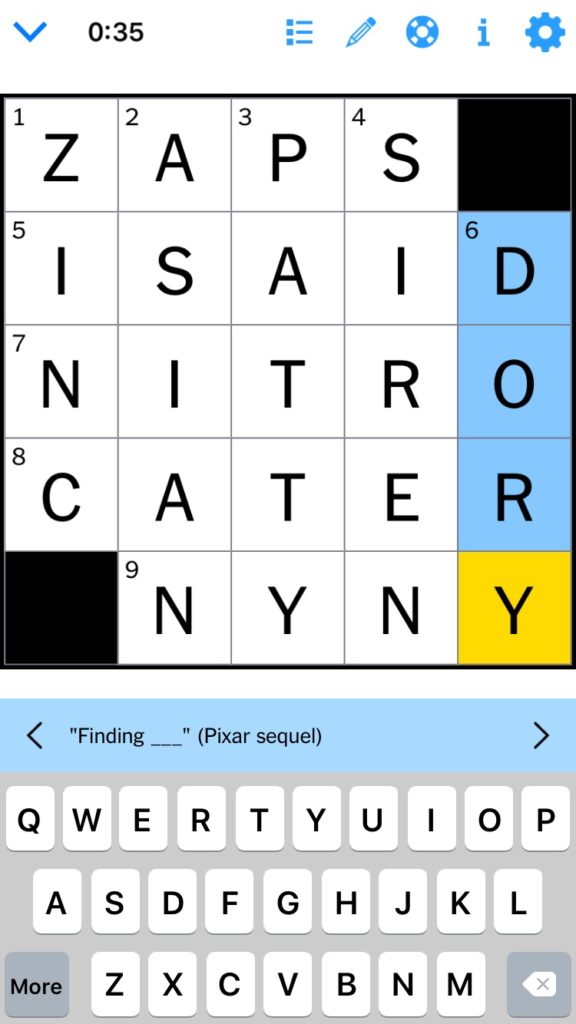I am still processing the wonderful Finding Your Fiat Conference I attended last weekend here in central Illinois. So many great memories and take-aways. Before I get to my promised talk notes, here are a few highlights of “Finding Your Fiat” from me:
*Friday night gathering: a mini-concert and then Karaoke with Marie Miller. I didn’t actually do Karaoke but I loved getting to sing and dance along. So many ladies ( Bonnie and Nell and so many others) did really funny and great songs. Now I want to somehow do karaoke with the family or friends. Is there an app or inexpensive way to get started with this?
*Saturday’s program: so many awesome women, so many adorable babies, praise and worship with Marie Miller, and more. The coloring pages provided by Katie Bogner, were lovely and relaxing as we began the day. Katie also hand-stamped sweet charms with the word “Fiat” on them. I wrote down tons of quotes from Colleen Mitchell and Meg Hunter-Kilmer and Jenna Guizar. I wish I could have heard the talks by Annie Tillberg and Laura Fanucci, but I was listening to a different talk during the former and giving my talk during the latter. I was super grateful that Mary Lenaburg agreed to come up towards the end of my talk and share some of her wisdom about finding time for life-giving pursuits even while processing grief and life changes.
So without further ado, here are notes from my talk, entitled:
Eleazar’s Commonplace Book, or Shine Like Lights
“Finding Your Fiat”
Intercession of
Venerable Father Solanus Casey
Prayer:
“Shine like lights in the world,
as you hold on to the word of life.” —Philippians 2:15-16
entire quote:
“So then, my beloved obedient as you have always been, not only when I am present all the more now when I am absent, work out your salvation with fear and trembling. For God is the one who, for his good purpose, works in you both to dear and to work.
Do everything without grumbling or questioning, that you may be blameless and innocent, children of God without blemish in the midst of a crooked and perverse generation, among who you shine like lights in the world, as you hold on to the word of life, so that my boast for the day of Christ may be that I did not run in vain or labor in vain.”
definitions:
Eleazar:
Hebrew scribe, 90 years old, martyred in Maccabees persecution
“But making a high resolve, worthy of his years and the dignity of his old age and the gray hairs that he had reached with distinction and his excellent life even from childhood, and moreover according to the holy God-given law, he declared himself quickly, telling them to send him to Hades.
“Such pretense is not worthy of our time of life,” he said, “for many of the young might suppose that Eleazar in his ninetieth year had gone over to an alien religion, and through my pretense, for the sake of living a brief moment longer, they would be led astray because of me, while I defile and disgrace my old age. Even if for the present I would avoid the punishment of mortals, yet whether I live or die I will not escape the hands of the Almighty. Therefore, by bravely giving up my life now, I will show myself worthy of my old age and leave to the young a noble example of how to die a good death willingly and nobly for the revered and holy laws.” –2 Maccabees 6:23-28
(worth reading the whole chapter and 2 Maccabees 7, the martyrdom of mother and seven sons, and she died after all her sons).
Commonplace book:
a notebook/scrapbook combination, a way for a learned person, scholar, or writer to keep random bits of information in one place.
have existed in that name since the 17th century, but even beforehand in works like the Notebooks of Leonardo DaVinci.
Here is a link to a facsimile of John Milton’s Commonplace Book
Here is a link to John Locke’s A New Method of Making Commonplace Books.
So, Eleazar’s Commonplace Book: random quotes and pieces of books from one who wants to be “worthy of her years and gray hair” to help you consider ways to “shine like lights” throughout life, and be able to persevere (“hold on to the word of life” and not “run in vain”).
Making Books–
Here is the hot dog booklet, and a link to the website with various other small book projects.
BLESSED ARE THE PURE IN HEART, FOR THEY SHALL SEE GOD
St. Gregory of Nyssa on the Beatitudes
“Bodily health is a good thing, but what is truly blessed is not only to know how to keep one’s health but actually to be healthy. If someone praises health but then goes and eats food that makes him ill, what is the use to him, in his illness, of all his praise of health?
“We need to look at the text we are considering in just the same way. It does not say that it is blessed to know something about the Lord God, but that it is blessed to have God within oneself. Blessed are the pure in heart, for they shall see God.
I do not think that this is simply intended to promise a direct vision of God if one purifies one’s soul. On the other hand, perhaps the magnificence of this saying is hinting at the same thing that is said more clearly to another audience: The kingdom of God is within you. That is, we are to understand that when we have purged our souls of every illusion and every disordered affection, we will see our own beauty as an image of the divine nature.”
QUESTION: How is the Kingdom of God Within You?
From City of Saints: A Pilgrimage to John Paul II’s Kraków by George Weigel.
“He was a moral reference point for his friends and did not hesitate to be a challenging counselor and confessor. But the pastoral stress … was always on personal responsibility. He was not the decider for his friends; they must be their own deciders, he insisted, if they were to be true to the moral dignity built into them as human persons and as Christians. “
later in the book:
“(Fr. Wojtyla was), according to one of his friends and penitents, uninterested in the ‘mass production of Christians’ in a confessional assembly line, but deeply committed to accompanying a fellow believer in his or her quest for the truth, including the truth of failure and the truth about making wise decisions. Yet Wojtyla, the confessor who gently prodded good decisions, never imposed decisions. ‘You must decide’ was his signature phrase in spiritual direction. One couldn’t opt out of the drama of life in the gap. One had to decide–and, with the grace of God and the support of the Church, wise and true decisions could be made.”
QUESTION: How can you be a decider? How can you be a good decider, filled with personal responsibility?
WIN HAPPINESS
Rilla of Ingleside by Lucy Maud Montgomery (writer of the Anne of Green Gables books). I dearly love all of the Anne books, and this is the last in the series about her family, and about Anne & Gilbert’s youngest child, darling, charming and growing-up Rilla (named after Marilla). Rilla of Ingleside is such a good book as a coming-of-age story, but also great historical fiction about WWI written close to the time. Noble and heartbreaking without being completely depressing, as a lot of fiction about WWI is, and rightfully so, since it’s the first modern war.
At one point, Rilla is bemoaning in a conversation with her brother Walter how the war is changing their whole community and family. Her brother Walter says:
“Now we won’t be sober any more. We’ll look beyond the years—to the time when the war will be over and Jem and Jerry and I will come marching home and we’ll all be happy again.”
“We won’t be—happy—in the same way,” said Rilla.
“No, not in the same way. Nobody whom this war has touched will ever be happy again in quite the same way. But it will be a better happiness, I think, little sister—a happiness we’ve earned. We were very happy before the war, weren’t we? With a home like Ingleside, and a father and mother like ours we couldn’t help being happy. But that happiness was a gift from life and love; it wasn’t really ours—life could take it back at any time. It can never take away the happiness we win for ourselves in the way of duty.”
QUESTION: What kind of happiness have you won in the way of duty?
MUSTER YOUR WITS
Emily of Deep Valley by Maud Hart Lovelace
Set in early 20th century Minnesota, Emily of Deep Valley by Maud Hart Lovelace, author of the iconic Betsy-Tacy books, is a coming-of-age story about a high school graduate, Emily, who can’t go away to college like her cousin and friends since she is taking care of the elderly grandfather who raised her. At first, she wallows in pity.
“Depression settled down upon her, and although she tried to brush it away it thickened like a fog. “Why, the kids will be home for Thanksgiving! That will be here in no time. I mustn’t get this way,” she thought. But she felt lonely and deserted and futile. “A mood like this has to be fought. It’s like an enemy with a gun,” she told herself. But she couldn’t seem to find a gun with which to fight.
Later, she learns to “muster her wits” and she starts a reading group, and goes out to dances, and becomes active in helping Syrian immigrants. She discovers a quote in Shakespeare:
“Muster your wits: stand in your own defense.” She had no idea in what sense he had used it, but it seemed to be a message aimed directly at her. “Muster your wits: stand in your own defense,” she kept repeating to herself on the long walk home. After dinner she sat down in her rocker, looked out at the snow and proceeded to muster her wits. “I’m going to fill my winter and I’m going to fill it with something worth while,” she resolved.
QUESTION: How Can you Muster Your Wits? What are your Resources for Doing that? (friends, faith, outside help)
EMBRACE YOUR GOOFY HOBBIES
C.S. Lewis’ The Screwtape Letters is a series of imaginary letters from a senior demon “(Screwtape) to his nephew about ways to ensnare a young man in WWII-era England. It’s a classic on the spiritual life and growth in holiness, both funny and spiritually insightful. All the terms and suggestions are backward (the Enemy is God).
“The deepest likings and impulses of any man are the raw material, the starting-point, with which the Enemy has furnished him. To get him away from those is therefore always a point gained; even in things indifferent it is always desirable to substitute the standards of the World, or convention, or fashion, for a human’s own real likings and dislikings. I myself would carry this very far. I would make it a rule to eradicate from my patient any strong personal taste which is not actually a sin, even if it is something quite trivial such as a fondness for county cricket or collecting stamps or drinking cocoa. Such things, I grant you, have nothing of virtue in them; but there is a sort of innocence and humility and self-forgetfulness about them which I distrust. The man who truly and disinterestedly enjoys any one thing in the world, for its own sake, and without caring two-pence what other people say about it, is by that very fact forearmed against some of our subtlest modes of attack. You should always try to make the patient abandon the people or food or books he really likes in favour of the ‘best’ people, the ‘right’ food, the ‘important’ books. I have known a human defended from strong temptations to social ambition by a still stronger taste for tripe and onions.”
QUESTION: What is Your Tripe & Onions?
AIR YOUR ROOMS
Rumer Godden’s Autobiography: A House with Four Rooms.
“There is an Indian proverb that says that everyone is a house with four rooms, a physical, a mental, an emotional, and a spiritual . Most of us tend to live in one room most of the time but unless we go into every room every day, even if only to keep it aired, we are not a complete person.”
Question: How can you air out those four rooms each day, or even each week? What can you do to be well-rounded?
RESOLUTION: How can you make time for something you “want” to do, not “have” to do?
My best example of a “want to”: The New York Times mini-crossword.
Some of mine:
Running
Daily Mass–more when kids were tiny, less when kids were busy
Adoration
Reading
QUESTION: What “want-tos” are you going to make intentional over the next few weeks?
I would love to hear what want-tos are in your line-up the next few weeks. If you attended “Finding Your Fiat,” I’d also love to hear your favorite parts and things you are pondering.
As a sharing of one of my “want-tos,” here is my completed New York Time mini-crossword for Wednesday (BTW, I didn’t do it in 35 seconds! I did it late last night, as I mentioned in my talk, and forgot to take a screen shot, so I did it again this morning. But many times I do get it in under a minute.):

































